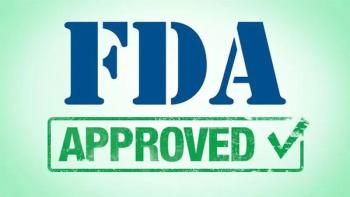
FDA Approves Zanubrutinib for MCL Treatment
The Food and Drug Administration granted accelerated approval to zanubrutinib for the treatment of relapsed and refractory mantle cell lymphoma.
The Food and Drug Administration (FDA) has approved zanubrutinib (Brukinsa) for the treatment of adult patients with relapsed and refractory mantle cell lymphoma (MCL) who received at least 1 prior therapy.1 The accelerated approval was granted based on results from 2 single-arm clinical trials that demonstrated a significant overall response rate (ORR) of 84% across both trials, according to BeiGene the manufacturer of the agent.
“Today’s FDA approval of Brukinsa, following the previously granted Breakthrough Therapy designation in this indication, validates it as an important treatment option for people with relapsed or refractory MCL. We hope this is the first of many approvals for Brukinsa as we continue to evaluate its potential in other hematologic cancers,” said John V. Oyler, chairman, co-founder, and CEO of BeiGene.
Zanubrutinib, a BTK inhibitor, looks to act as a second-line therapy option for patients with MCL, a type of non-Hodgkin lymphoma that by the time of diagnosis has often already spread to the lymph nodes, bone marrow, and other organs. “BTK inhibition is an established mode of treatment for patients with MCL, but many patients treated with previously approved BTK inhibitors do not fully respond to BTK therapy or are forced to discontinue treatment early due to side effects. Today we have a new option for our adult patients who have received 1 prior systemic or targeted therapy and are living with MCL, an aggressive blood cancer that’s often diagnosed at a more advanced stage,” said Luhua (Michael) Wang, M.D., professor in the department of lymphoma and myeloma, division of cancer medicine at The University of Texas MD Anderson Cancer Center, and clinical trial investigator.
Compared to other BTK inhibitors zanubrutinib was tolerated well by patients since it entered the clinic in 2014. Only 8 of the 118 patients with MCL treated with zanubrutinib discounted their treatment due to adverse events (AEs) in the course of the trial. The most frequent of these AEs was pneumonia (3.4%).2 Other common AEs with zanubrutinib included decreased neutrophil count, decreased platelet count, upper respiratory tract infection, decreased white blood cell count, decreased hemoglobin, rash, bruising, diarrhea, cough, musculoskeletal pain, pneumonia, urinary tract infection, blood in the urine (hematuria), fatigue, constipation, and hemorrhage. The most frequent serious adverse reactions were pneumonia (11%) and hemorrhage (5%).
The FDA also recommended that during the course of treatment patients should be monitored for hemorrhage, signs, and symptoms of infection, cytopenias, and cardiac arrhythmias.
“Clinical trials [of zanubrutinib] showed that 84% of patients saw tumor shrinkage with this therapy. For patients whose disease relapses or becomes refractory, secondary therapies may be successful in providing another remission, and today’s approval will provide patients with another treatment option,” said Richard Pazdur, M.D., director of the FDA’s Oncology Center of Excellence and acting director of the Office of Oncologic Diseases in the FDA’s Center for Drug Evaluation and Research.
In the 2-phase II, single-arm trials of zanubrutinib resulting in an 84% ORR, patients showed a favorable median of duration of response of 19.5 months in the first trial and 18.5 months in the second one. In the first phase II trial of patients with relapsed or refractory MCL, zanubrutinib demonstrated 59% complete response and 24% partial response compared to 22% complete response and 62% partial response in the second trial.
Originally granted a breakthrough designation by the FDA
References:
- Commissioner Of the. FDA approves therapy to treat patients with relapsed and refractory mantle cell lymphoma supported by clinical trial results showing high response rate of tumor shrinkage. U.S. Food and Drug Administration. https://www.fda.gov/news-events/press-announcements/fda-approves-therapy-treat-patients-relapsed-and-refractory-mantle-cell-lymphoma-supported-clinical?utm_campaign=FDA approves therapy to treat adult patients with relapsed and refractory mantle cell lymphoma&utm_medium=email&utm_source=Eloqua. Published November 14, 2019. Accessed November 15, 2019.
- BeiGene LTD. U.S. FDA Grants BeiGene's BRUKINSA™ (zanubrutinib) Accelerated Approval to Treat Adult Patients with Mantle Cell Lymphoma Who Received at Least One Prior Therapy. BeiGene LTD. http://ir.beigene.com/news-releases/news-release-details/us-fda-grants-beigenes-brukinsatm-zanubrutinib-accelerated. Published November 14, 2019. Accessed November 15, 2019.
Newsletter
Knowledge is power. Don’t miss the most recent breakthroughs in cancer care.































































































